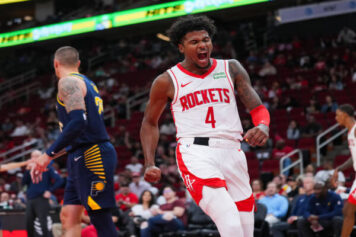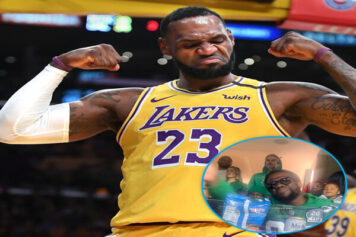Why, in this age of constant Internet-induced trash talking, are we ever surprised when people disrespect those who should be praised, while showing love to ones who should be banished? Last week, reports circulated within the media about 17-year-old New Yorker Kwasi Enin, who garnered an almost perfect 2250 SAT score and eventually was accepted to all eight Ivy League schools. The initial reaction of black folks across America was one of pride. There were all sorts of Facebook posts celebrating Enin’s accomplishments as being proof that there was hope for much maligned young black men in the United States. Prior to that joyous revelation, days earlier, a young brother from Washington, D.C. named Avery Coffey received offers to attend five Ivy League schools – Harvard, Princeton, Yale, the University of Pennsylvania and Brown after finishing his school year with a 4.3 GPA. And now there’s Oakland, CA’s Akintunde Ahmad, who with a 5.0 GPA and 2100 SAT score is also being wooed by the Ivy elite.
Bloggers of color at nearly every site aimed at an African-American audience have had at least one article dedicated to this story. Initially I left commenting alone, and gladly so. Partly because I knew the accomplishments of these two young men were tailor-made for another long, emotional, and drawn out conversation on black men in America.
As a “brotha” in my early 40s, it is a conversation I am so tired of having. Why is a young black man attending college and being accepted into one of the elite a big deal? Of course there are black men out there doing the right thing. But when one shows brains, it goes against the common beliefs of a great swath of America as it relates to men of color, so the media and portions of the public go wild.
I get it. The black man in America is eternally in need of positive PR due to the manner in which we have long been portrayed in music, film and television as thugs, fools, and societal miscreants. These perceptions are true for some, but not all. As a nation, we tend to overreact whenever we come across a story that is indicative of someone who is operating in a mode contrary to the stereotypically brutish and seemingly uneducated African-American male.
And then there’s the opposing side that comes out just when you feel like it’s okay to bask in the glory of accomplishment. A troll emerges with a balancing act, from beneath the bridge of life, to snatch feelings of success right from the heart and stomp on them as if they are nothing.
Following news of the seemingly “rare” Ivy League achievements, a significant number of journalists came out to do their best in getting everyone to curb their enthusiasm. Last week, Valerie Strauss of The Washington Post was accused of being a racist for her article, “Can We Stop Obsessing on the Ivy League?" Straus’ thesis was not one that bashed the young men for their accomplishments, but the system that feels it is necessary to advertise the achievements of the academic elite as if their successes were indicative of American academic success overall, when clearly these are anomalies.
After reading Valerie Strauss' Washington Post article, I cannot say that it is racist, but the angle is clearly from that of an individual who is from the white majority with little knowledge of the black experience. And from a journalistic perspective, the accomplishments of Enin and Coffey made her story timely and relevant.
Other outlets accused quota fulfillment as the reason why Enin and Coffey were accepted to the schools, adding to the current “reverse racism” claims against Affirmative Action. Again, a point of view that is handcrafted by a conservative mindset bubbles to the surface.
For me, the emotions of joy and accomplishment toward these boys were just as feverish as those of every other black person who raved and applauded. Initially feeling as if Enin and Coffey were long lost cousins with intellect, after taking a deep breath, I realized that this fervent dialectic did not say anything good about African-Americans as a whole. Being accepted into an Ivy League college should not be a big deal. In fact, for some, depending on where they grew up, it is the norm. For others who spew raving accolades, it is indeed a rarity.
I see both sides. I’d known some who’d gone Ivy League, like an ex-girlfriend of mine. In high school, I thought about applying to Princeton University. But one look at the $75 application fee (back in the ‘90s), I disqualified myself based on economics, never asking my mother if she could afford it. Coming up, there were so many times when I heard her talk about what she could and could not afford. Money was always an issue. So I never applied. It makes me now wonder how many other kids, particularly African-American, simply assumed their parents could not afford an Ivy League school and never submitted the application despite having the grades to get in. Or how many other bright minds were simply never encouraged and told they should.
At the end of the day, the accomplishments of Kwasi Enin and Avery Coffey prove once again that there is a subset of young black men in America who take their educations seriously, were raised and pushed properly, and are now are being celebrated for their accomplishments. But still, what’s the big deal? There have always been men of this strain who are of African descent in America. It’s one to celebrate, but it really shouldn’t be a media spectacle.



